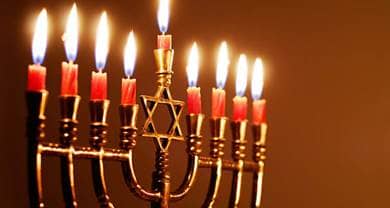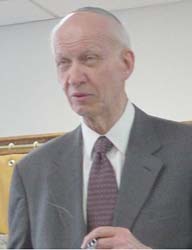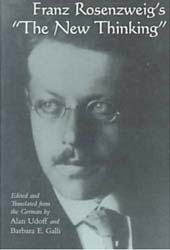- Trending:
- Pope Leo Xiv
- |
- Israel
- |
- Trump
- |
- Social Justice
- |
- Peace
- |
- Love

RELIGION LIBRARY
Judaism
Human Nature and the Purpose of Existence
The theological framework for linking human beings with God and each other is the covenant. Whereas Jews have a particular covenant with God as the children of Israel, the rest of humanity is perceived to have a universal covenant associated with the children of Noah. According to classical rabbinic Judaism, this notion of covenant first binds Jews to God because of the assumption that human beings represent the pinnacle of creation and are indebted to their creator.
The rabbis attributed a dual nature to human beings and placed them between earthly and heavenly creatures in the hierarchy of being. They are unlike heavenly creatures whose bodies and souls are both divine, and they are also unlike earthly creatures whose bodies and souls come from the earth. Instead, human beings are the only creatures whose souls are from heaven and whose bodies are from earth. Subsequently, if Jews obey God's commandments, then they act as heavenly creatures, and if not, they act like the creatures below them.
Since human beings were created with free will, God gives them the choice of pursuing "life and prosperity" or "death and adversity," ultimately enjoining them to choose life (Deut. 30:15, 19). Moreover, God entices Israel to observe the commandments, because they will lead to the following three results: they will become godly; God will raise them up above all the nations as God's "Am Segulah," treasured or Chosen people; and they will fulfill God's "holy mission" of being an "or lagoyim," a light unto the nations. Yet holiness is not an inherent status, but fully conditional upon observance of the commandments. Jews are actually required by God to become holy through observance of the commandments, especially by emulating God who "upholds the cause of the fatherless and the widow, and befriends the stranger, providing him with food and clothing" (Deut. 10:19). For the rabbis, the ultimate purpose of human existence was to praise God as the creator of the universe and to engage in imitatio dei, imitating God.
| Observing commandments leads Jews to: |
| 1. become godly 2. be raised up as God’s chosen people (Am segulah) 3. become a light to the nations (Or lagoyim) |
However, while the rabbinic Jew was entirely theocentric, Jews in the modern period became much more self-assertive about their role in the covenant based on western Enlightenment notions of self-consciousness and autonomy, at times even supplanting God with human supremacy. Ironically, following the Holocaust—considered by many theologians to be the diabolical culmination of human self-assertiveness in history with Hitler—Jews and Christians, because of their historical sibling rivalry over who is God's favorite child, have both been called to assume greater responsibility in preserving their own related covenants and facilitating the work of redemption.
 In this post-Holocaust world, God is perceived to have contracted divine power in order to empower humanity to act more responsibly and selflessly to prevent another Holocaust in the future. In an explicit inversion of the scriptural call for imitating God's holiness, the post-Holocaust theologian Irving Greenberg has argued that because of God's deep self-concealment after the Holocaust, both Jews and Christians are encouraged to connect with God even in the most secular of places, away from centers of institutionalized religion, through everyday activities that contribute to tikkun olam, the repair of the world. Irving Greenberg refers to this search for divinity in the secular areas of life as a form of "holy secularism."
In this post-Holocaust world, God is perceived to have contracted divine power in order to empower humanity to act more responsibly and selflessly to prevent another Holocaust in the future. In an explicit inversion of the scriptural call for imitating God's holiness, the post-Holocaust theologian Irving Greenberg has argued that because of God's deep self-concealment after the Holocaust, both Jews and Christians are encouraged to connect with God even in the most secular of places, away from centers of institutionalized religion, through everyday activities that contribute to tikkun olam, the repair of the world. Irving Greenberg refers to this search for divinity in the secular areas of life as a form of "holy secularism."
 Yet in addition to binding Jews to God, the covenant obligates them to reach out to one another and to the stranger outside of their community because their people were once strangers in the land of Egypt. It is this movement from the divine-human to the inter-human relationship that will ultimately bring about redemption. The early 20th-century German Jewish theologian Franz Rosenzweig asserted that the commandment to love one's neighbor is the "embodiment of all the commandments" that derives directly from the commandment to love God and concretizes it in ethical behavior.
Yet in addition to binding Jews to God, the covenant obligates them to reach out to one another and to the stranger outside of their community because their people were once strangers in the land of Egypt. It is this movement from the divine-human to the inter-human relationship that will ultimately bring about redemption. The early 20th-century German Jewish theologian Franz Rosenzweig asserted that the commandment to love one's neighbor is the "embodiment of all the commandments" that derives directly from the commandment to love God and concretizes it in ethical behavior.
For the Jew, this commandment is manifest in the fundamental maxim that all Jews are responsible for one other. Indeed their covenant with God is predicated on human sociality, and the divine revelation initiating it was given to a community of persons, not isolated individuals. Today, this covenant with God binds Jews to a diverse multi-culture with ties to a mutually shared land, language, and history.
 Finally, this covenantal community possesses a common vision of messianic redemption. All Jews may not agree whether one man, the entire Jewish people, or the world will usher in this messianic age, yet they mainly share a common hope for an era of universal peace, justice, and love. Ultimately, however this universal redemptive era will not emerge without Jewish outreach to the slave, stranger, and the poor that Jews are reminded about every year at the Pesach seder celebration. They are commanded to annually retell the story of the Exodus from Egypt to reconnect themselves with their past and apply the universal message of freedom to the contemporary world. The freeing of the Israelite slaves demonstrates that human beings are supposed to be free and that God has a universal concern for all types of enslavement in the world, whether it takes a physical, spiritual, emotional, or intellectual form or whether it involves women, children, or general victims of persecution. Another name for the Passover holiday is zman cheruteinu, "The Time of Our Freedom," and it brings Jews together to turn that hope into a reality for the world.
Finally, this covenantal community possesses a common vision of messianic redemption. All Jews may not agree whether one man, the entire Jewish people, or the world will usher in this messianic age, yet they mainly share a common hope for an era of universal peace, justice, and love. Ultimately, however this universal redemptive era will not emerge without Jewish outreach to the slave, stranger, and the poor that Jews are reminded about every year at the Pesach seder celebration. They are commanded to annually retell the story of the Exodus from Egypt to reconnect themselves with their past and apply the universal message of freedom to the contemporary world. The freeing of the Israelite slaves demonstrates that human beings are supposed to be free and that God has a universal concern for all types of enslavement in the world, whether it takes a physical, spiritual, emotional, or intellectual form or whether it involves women, children, or general victims of persecution. Another name for the Passover holiday is zman cheruteinu, "The Time of Our Freedom," and it brings Jews together to turn that hope into a reality for the world.
Study Questions:
1. Why is the covenant an important part of Jewish identity?
2. Why do Jews have a choice in the type of life they would like to pursue? What are the options, and what is recommended?
3. What is meant by holy secularism? How does one achieve it?
4. How is the covenant remembered?










